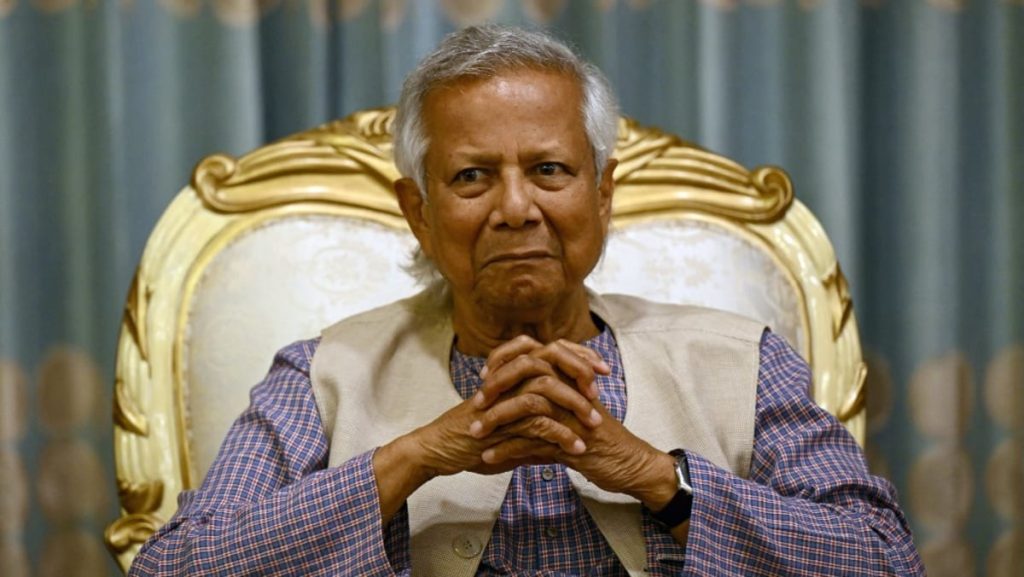Sheikh Hasina, the ousted premier of Bangladesh, has been exiled in India following her dramatic departure from her palace as protesters marched against her rule. The interim government, led by Nobel laureate Muhammad Yunus, is facing pressure from the public to demand her extradition and trial for the deaths of hundreds of demonstrators during the unrest that led to her ouster. Yunus has stated that Hasina should remain quiet while in India until she is brought back to Bangladesh for trial, and that her continued involvement in politics from abroad is causing tensions between the two neighboring countries.
Hasina’s decision to remain in India, where she has been a major benefactor of her government, has further strained relations between Bangladesh and India. Her public statement calling for a gathering in Dhaka to mark the assassination of her father, Sheikh Mujibur Rahman, was seen as a provocation to her Awami League party members and a challenge to Yunus’ interim government. This led to a counter-demonstration in Dhaka, where suspected Awami League supporters were attacked by a mob, highlighting the fragile state of law and order in the country.
Yunus, who has taken over as the interim leader of Bangladesh, has been working to stabilize the country and move towards a peaceful transition of power. He has called for Hasina to refrain from making statements or giving instructions from India, as it is not conducive to the peace and stability of Bangladesh. The pressure on the interim government to prosecute Hasina for the deaths of protesters during her rule is indicative of the desire for justice and accountability in the country.
The ongoing political turmoil in Bangladesh has raised concerns about the future stability of the country and the potential for further violence. The interim government led by Yunus faces the challenge of maintaining order and justice while working towards a peaceful resolution of the political crisis. The involvement of international actors, including India, adds another layer of complexity to the situation, as they navigate the delicate balance between supporting the rule of law and respecting the sovereignty of Bangladesh.
As Sheikh Hasina remains in exile in India, the question of her return to Bangladesh for trial looms over the political landscape. The demands for her extradition and prosecution highlight the unresolved tensions and divisions within Bangladeshi society. The role of Yunus as the interim leader of the country will be crucial in managing the transition period and ensuring that justice is served for the victims of the unrest that led to Hasina’s ouster. Only time will tell how the political situation in Bangladesh will unfold and what the future holds for the country and its people.


